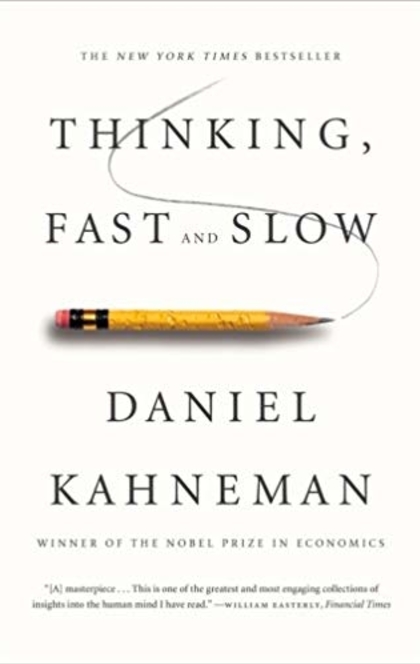
Yuval Noah Harari Books - 28 Favorite Reads
Yuval Noah Harari
Yuval Noah Harari is a massive book fan. Here is the list of the most prominent reads from the scientist.
See all
0
likes
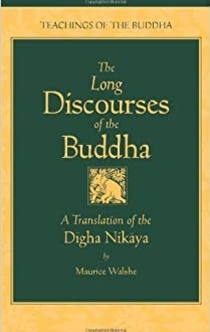
The Long Discourses of the Buddha: A Translation of the Digha Nikaya
A very profound collection of texts with a lot of influence on my thinking.
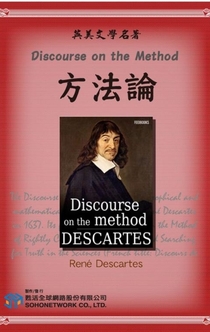
Discourse on the Method (方法論)
"Name a book that changed your life.YH: Rene Descartes’ Discourse on the Method."
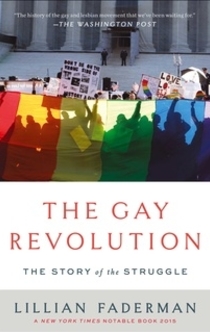
The Gay Revolution
The sweeping story of the struggle for gay and lesbian rights—based on amazing interviews with politicians, military figures, and members of the entire LGBT community who face these challenges every day: “This is the history of the gay and lesbian movement that we’ve been waiting for” (The Washington Post).The fight for gay and lesbian civil rights—the years of outrageous injustice, the early battles, the heart-breaking defeats, and the victories beyond the dreams of the gay rights pioneers—is the most important civil rights issue of the present day. In “the most comprehensive history to date of America’s gay-rights movement” (The Economist), Lillian Faderman tells this unfinished story through the dramatic accounts of passionate struggles with sweep, depth, and feeling. The Gay Revolution begins in the 1950s, when gays and lesbians were criminals, psychiatrists saw them as mentally ill, churches saw them as sinners, and society victimized them with hatred. Against this dark backdrop, a few brave people began to fight back, paving the way for the revolutionary changes of the 1960s and beyond. Faderman discusses the protests in the 1960s; the counter reaction of the 1970s and early eighties; the decimated but united community during the AIDS epidemic; and the current hurdles for the right to marriage equality. “A compelling read of a little-known part of our nation’s history, and of individuals whose stories range from heart-wrenching to inspiring to enraging to motivational” (Chicago Tribune), The Gay Revolution paints a nuanced portrait of the LGBT civil rights movement. A defining account, this is the most complete and authoritative book of its kind.
See all

The Attention Merchants
A very insightful book that surveys the history of modern information technology and its political implications, from the age of print and radio to the era of Google and Facebook. It gives the context of the current battle to control human attention.

Chimpanzee Politics
It completely changed my view of chimpanzees and Homo sapiens alike. Probably the most funny science book I have ever read. A must-read for politicians of all species!
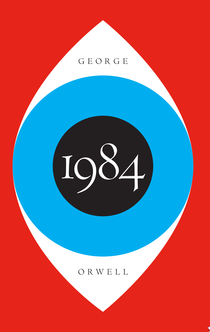
1984
The only question left open after you finish reading 1984 is How do we avoid getting there?
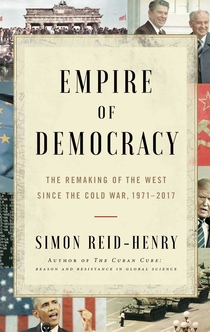
Empire of Democracy
The first panoramic history of the Western world from the 1970s to the present day, Empire of Democracy is the story for those asking how we got to where we are.Half a century ago, at the height of the Cold War and amidst a world economic crisis, the Western democracies were forced to undergo a profound transformation. Against what some saw as a full-scale “crisis of democracy”— with race riots, anti-Vietnam marches and a wave of worker discontent sowing crisis from one nation to the next— a new political-economic order was devised and the postwar social contract was torn up and written anew. In this epic narrative of the events that have shaped our own times, Simon Reid-Henry shows how liberal democracy, and western history with it, was profoundly reimagined when the postwar Golden Age ended. As the institutions of liberal rule were reinvented, a new generation of politicians emerged: Thatcher, Reagan, Mitterrand, Kohl. The late twentieth century heyday they oversaw carried the Western democracies triumphantly to victory in the Cold War and into the economic boom of the 1990s. But equally it led them into the fiasco of Iraq, to the high drama of the financial crisis in 2007/8, and ultimately to the anti-liberal surge of our own times. The present crisis of liberalism enjoins us to revisit these as yet unscripted decades. The era we have all been living through is closing out, democracy is turning on its axis once again. As this panoramic history poignantly reminds us, the choices we make going forward require us first to come to terms with where we have been.
See all

The Future is History
In The Future is History Masha Gessen follows the lives of four Russians, born as the Soviet Union crumbled, at what promised to be the dawn of democracy. Each came of age with unprecedented expectations, some as the children or grandchildren of the very architects of the new Russia, each with newfound aspirations of their own - as entrepreneurs, activists, thinkers and writers, sexual and social beings. Gessen charts their paths not only against the machinations of the regime that would seek to crush them all (censorship, intimidation, violence) but also against the war it waged on understanding itself, ensuring the unobstructed emergence of the old Soviet order in the form of today's terrifying and seemingly unstoppable mafia state. The Future is History is a powerful and urgent cautionary tale by contemporary Russia's most fearless inquisitor.
See all

The Ukrainian Night
A vivid and intimate account of the Ukrainian Revolution, the rare moment when the political became the existential What is worth dying for? While the world watched the uprising on the Maidan as an episode in geopolitics, those in Ukraine during the extraordinary winter of 2013–14 lived the revolution as an existential transformation: the blurring of night and day, the loss of a sense of time, the sudden disappearance of fear, the imperative to make choices. In this lyrical and intimate book, Marci Shore evokes the human face of the Ukrainian Revolution. Grounded in the true stories of activists and soldiers, parents and children, Shore’s book blends a narrative of suspenseful choices with a historian’s reflections on what revolution is and what it means. She gently sets her portraits of individual revolutionaries against the past as they understand it—and the future as they hope to make it. In so doing, she provides a lesson about human solidarity in a world, our world, where the boundary between reality and fiction is ever more effaced.
See all
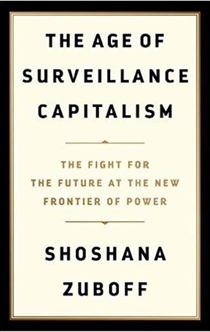
The Age of Surveillance Capitalism
THE TOP 10 SUNDAY TIMES BESTSELLER Shortlisted for the FT Business Book of the Year Award 2019 'Easily the most important book to be published this century. I find it hard to take any young activist seriously who hasn't at least familarised themselves with Zuboff's central ideas.' - Zadie Smith, The GuardianThe challenges to humanity posed by the digital future, the first detailed examination of the unprecedented form of power called "surveillance capitalism," and the quest by powerful corporations to predict and control us.The heady optimism of the Internet's early days is gone. Technologies that were meant to liberate us have deepened inequality and stoked divisions. Tech companies gather our information online and sell it to the highest bidder, whether government or retailer. Profits now depend not only on predicting our behaviour but modifying it too. How will this fusion of capitalism and the digital shape our values and define our future?Shoshana Zuboff shows that we are at a crossroads. We still have the power to decide what kind of world we want to live in, and what we decide now will shape the rest of the century. Our choices: allow technology to enrich the few and impoverish the many, or harness it and distribute its benefits. The Age of Surveillance Capitalism is a deeply-reasoned examination of the threat of unprecedented power free from democratic oversight. As it explores this new capitalism's impact on society, politics, business, and technology, it exposes the struggles that will decide both the next chapter of capitalism and the meaning of information civilization. Most critically, it shows how we can protect ourselves and our communities and ensure we are the masters of the digital rather than its slaves.
See all

Sources of the Self
No twentieth-century philosophical book besides “Sources of the Self,” by Charles Taylor, had influenced him more.
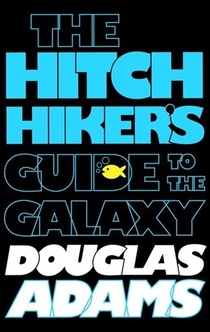
The Hitchhiker's Guide to the Galaxy
“The Hitchhiker’s Guide to the Galaxy,” by Douglas Adams, a book “packed with so much good philosophy.”
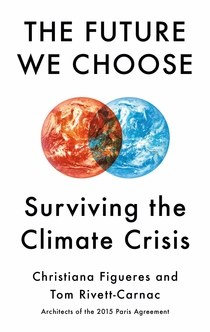
The Future We Choose
Congrats to @CFigueres & @tomcarnac , whose new book takes a hard look at the frightening realities of ecological collapse, but presents them as a unique opportunity to build a more just world—with 10 concrete actions for a better future.

AI Superpowers
AI Superpowers by Kai-Fu Lee (Houghton Mifflin) is a superb and very timely survey of the impact of AI on the geopolitical system, the job market and human society. Unlike most books of its kind, it is written from the perspective of China rather than Silicon Valley. It raises important concerns about the cataclysmic disruptions AI might cause, and avoids the naive techno-utopianism that reigns on both sides of the Pacific. If the AI superpowers enter an escalating arms race, whoever wins, humanity will be the loser.
See all

How to Change Your Mind
Michael Pollan’s How to Change Your Mind: The New Science of Psychedelics (Allen Lane) changed my mind, or at least some of the ideas held in my mind. Pollan takes a fresh look at the controversial history of psychedelic drugs, highlighting their positive potential without hiding their dangerous side. It is all too easy for a spiritual quest for truth to mutate into a consumerist pursuit of excitement. Whatever one may think of psychedelics, the book reminds us that the mind is the greatest mystery in the universe, that this mystery is always right here, and that we usually dedicate far too little time and energy to exploring it.
See all

Enlightenment Now
Pinker extols the amazing achievements of modernity, and demonstrates that humankind has never been so peaceful, healthy and prosperous. There is of course much to argue about, but that’s what makes this book so interesting.

The Road to Unfreedom
A brilliant and disturbing analysis of the rise of authoritarianism in Russia, Europe and the USA in the second decade of the twenty-first century. Essential reading for anyone wishing to understand the political crisis currently engulfing the world.

Gangster Warlords
A gripping narrative of Latin America’s new crime wars. It challenges our basic concepts of politics, economics and even religion, recounting how criminality mutates into warfare, how drug cartels mutate into multinational corporations, and how gangsters mutate into politicians and even into religious prophets.
See all

Black Flags
I picked it up with a heavy heart, dreading it would be a sensationalist lightweight playing up to Western fears and biases. It turned out to be a deep, well-balanced and thought provoking account with a genuine feel for Middle Eastern realities.

Age of Ambition
China is the new economic giant of the world. Officially China is still a communist country. But do communist ideals really explain the behavior of either the Chinese government or the ordinary Chinese citizen? Unlike many other books about contemporary China that focus on the economic story alone, Evan Osnos tries to uncover the soul of the new China. One of the most hilarious parts of the book tells how Osnos – an American – joins a Chinese group tour of classical Europe. Looking at Rome and Paris through the eyes of a Chinese tourist may be one of the best introductions to the new global order of the 21st century.
See all

Congo
Humans have different pasts, and perhaps different futures too. Originally, we are all Africans. To understand the world of 21st century, Africa is perhaps still the best place to start. Whenever we talk about algorithms, climate change or globalization, a good question to bear in mind is “what does this mean for Congo?”.
See all

Weapons of Math Destruction
In this fascinating and deeply disturbing book O’Neil explains how authority is shifting from humans to Big Data algorithms, which decide whether to give you a loan, offer you a job, or even lock you in jail.

The Sixth Extinction
Five times in the history of the world much of life went extinct. The last time it happened was 65 million years ago, when an asteroid hit planet earth, causing the extinction of the dinosaurs, and about 75% percent of all other species. Now it is happening for the sixth time. But this time, the cause isn’t an asteroid from outer space. This time the cause is us, humankind. We are now the single most important agent of change in the global ecology, and we are in the process of rewriting the most basic rules of the game of life.
See all







